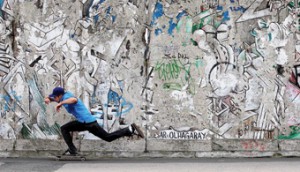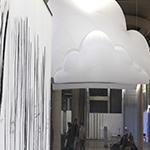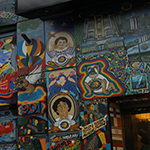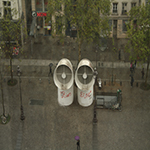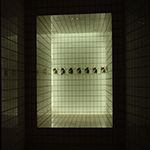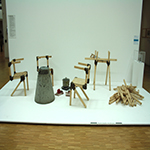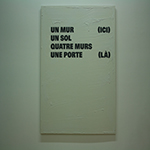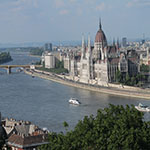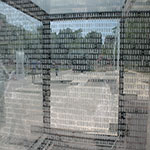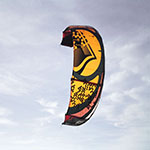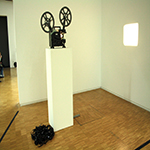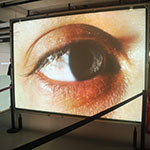Berlin Berlin Hotel
Conference Room: Montreal Lützowplatz 17, 10785 Berlin GermanyConference program
- March 28, 2014
- 09:00 - 09:30Registration (Reception Desk, Conference Room Montreal - Foyer)
- 09:30 - 10:30Welcome and Opening Remarks
- 10:30 - 11:00Coffee Break and Snacks (Conference Room Montreal - Foyer)
- 11:00 - 13:00Panel 1 – Thinking Europe - East and West: Reflections on Politicised Identities, Historical Perceptions and Invented Regions (Chair: Emanuel Crudu, IMT Institute for Advanced Studies, Italy)
- 13:00 - 14:00Lunch (All Seasons Restaurant)
- 14:00 - 16:00Panel 2 – Readings of the Past: On History and Memory in Central and Eastern Europe (Chair: Ekaterina Bagreeva, Russian Economic University of G. V. Plekhanov, Moscow)
- 16:00 - 16:30Coffee Break and Snacks (Conference Room Montreal - Foyer)
- 16:30 - 18:30Panel 3 – Art as Cultural Diplomacy: (Re)Constructing Notions of Eastern and Western Europe (Chair: Cassandra Sciortino, University of California, Santa Barbara, USA)
- 18:30 - 20:00Panel 4 – Identities and The Cities: Transition and Change in Urban Image Construction in Central and Eastern Europe (Chair: Camelia Lenart, State University of New York at Albany, U.S.A.)
- 20:00 - 20:30Welcome Drink
- 20:30 - 21:30Optional Social Dinner
- March 29, 2014
- 09:00 - 10:30Panel 5 – Eastern Europe and the EU: Assessing Normative Claims – Security, Perceptions and the Process of Integration (Chair: German Mendzheritskiy, Russian Science Academy)
- 10:30 - 11:00Coffee Break and Snacks (Conference Room Montreal - Foyer)
- 11:00 - 13:00Panel 6 – Facing Europeanization – East and West: Models for Change, Migration and Strategies of Cultural Resistance (Chair: Lia Tsuladze, Tbilisi State University, Georgia / St. Antony's College, University of Oxford)
- 13:00 - 14:00Lunch (All Seasons Restaurant)
- 14:00 - 16:00Panel 7 – Central East European Economies: Trade, Development and Structural Change in the Region (Chair: Anca Voicu, Rollins College, Florida, USA)
- 16:00 - 16:30Coffee Break and Snacks (Conference Room Montreal - Foyer)
- 16:30 - 18:30Panel 8 – Art as Cultural Diplomacy: Identities and Representations of Eastern Europe in Literature and Film (Chair: Cassandra Sciortino, University of California, Santa Barbara, USA)
- 18:30 - 19:00Closing Session
- 19:00 - 21:00Optional Social Dinner
- March 28, 2014
Re-Inventing Eastern Europe (The Third Edition)

- Conference Description
- Participant’s Profile
- Registration and Fee
- Social Activities and Publication
- Important Dates
- Venue and Directions
- Conference Program
- Panel 1
- Panel 2
- Panel 3
- Panel 4
- Panel 5
- Panel 6
- Panel 7
- Panel 8
The Third International Conference
‘Re-Inventing Eastern Europe’
28 – 29 March 2014
Berlin, Germany
4* Superior Hotel Berlin
Conference Description
Not a long time ago, a British lady was considered bigoted by Gordon Brown upon asking ‘all these Eastern Europeans what are coming in, where are they flocking from?’(1). The zoological word is not a novelty in the cultural invention of Eastern Europe. Maybe, despite her concern with the dangers of immigration for Britain, the lady was right in showing that such a question still awaits for answers in Europe. The ironic aspect however is that a first answer to such a question would point to the fact that the Eastern Europeans come from the Western European imaginary. As Iver Neumann puts it, ‘regions are invented by political actors as a political programme, they are not simply waiting to be discovered’(2). And, as Larry Wolff skilfully showed, Eastern Europe is an invention emanated initially from the intellectual agendas of the elites of the Enlightenment that later found its peak of imaginary separation during the Cold War(3).
The Economist, explicitly considered Eastern Europe to be wrongly labelled and elaborated that ‘it was never a very coherent idea and it is becoming a damaging one’(4). The EU enlargement however was expected to make the East/West division obsolete under the veil of a prophesied convergence. That would have finally proven the non-ontological, historically contingent and unhappy nature of the division of Europe and remind Europeans of the wider size of their continent and the inclusive and empowering nature of their values. Yet still, more than 20 years after the revolutions in the Central and Eastern European countries, Leon Mark, while arguing that the category of Eastern Europe is outdated and misleading, bitterly asks a still relevant question: ‘will Europe ever give up the need to have an East?’(5)
Eastern Europe was invented as a region and continues to be re-invented from outside and inside. From outside its invention was connected with alterity making processes, and, from inside the region, the Central and Eastern European countries got into a civilizational beauty contest themselves in search of drawing the most western profile: what’s Central Europe, what’s more Eastern, what’s more Ottoman, Balkan, Byzantine, who is the actual kidnapped kid of the West, who can build better credentials by pushing the Easterness to the next border. A wide variety of scholars addressed the western narratives of making the Eastern European ‘other’ as an outcome of cultural politics of enlightenment, as an effect of EU’s need to delineate its borders, as an outcome of its views on security, or as a type of ‘orientalism’ or post-colonialism. Most of these types of approaches are still useful in analyzing the persistence of a East-West slope. The region is understood now under a process of convergence, socialization and Europeanization that will have as outcomes an ‘ever closer union’ where the East and the West will fade away as categories. Yet the reality is far from such an outcome while the persistence of categories of alterity making towards the ‘East’ is not always dismantled. The discourses on core/non-core, new Europe/old Europe, pioneers/followers, teachers/pupils, centre/periphery, cosmos/chaos are often maintaining significant ground within the arena of European identity narratives often yet not exclusively voiced by the EU.
The Third Euroacademia International Conference ‘Re-Inventing Eastern Europe’ aims rather than asserting to make a case and to provide alternative views on the dynamics, persistence and manifestations of the practices of alterity making that take place in Europe and broadly in the mental mappings of the world. It offers an opportunity for scholars, activists and practitioners to locate, discuss and debate the multiple dimensions in which specific narratives of alterity making towards Eastern Europe preserve their salience today in re-furbished and re-fashioned manners. The conference aims to look at the processes of alterity making as puzzles and to address the persistence of the East-West dichotomies.
(1) See the whole dialogue between Gillian Duffy and Gordon Brown on BBC News online at http://news.bbc.co.uk/2/hi/uk_news/politics/election_2010/8649448.stm
(2) Neumann, Iver. 2001. Regionalism and Democratisation. In Jan Zielonka and Alex Pravda (eds.), Democratic Consolidation in Eastern Europe, Vol 2 International Dimensions. Oxford and New York: Oxford University Press, pp. 58 – 75, p. 71.
(3) Wolff, Larry. 1994. Inventing Eastern Europe. The Map of Civilization on the Mind of the Enlightenment. Stanford: Stanford University Press.
(4) The Economist, January 7th 2010, http://www.economist.com/node/15213108
(5) Marc, Leon. 2009. What’s So Eastern about Eastern Europe? Twenty Years After the Fall of The Berlin Wall. Trowbridge: Oldcastle Books, p.161.
Participant’s Profile
The conference is addressed to academics, researchers and professionals with a particular interest in Central and Eastern Europe from all parts of the world. As the nature of the conference is intended to be multidisciplinary in nature different academic backgrounds are welcomed.
Post-graduate students, doctoral candidates and young researchers are welcomed to submit an abstract. Representatives of INGOs, NGOs, Think Tanks and activists willing to present their work with impact on or influenced by specific understandings of the Central and Eastern Europe are welcomed as well to submit the abstract of their contribution.
Abstracts are reviewed and the participants are selected based on the proven quality of the abstract. The submitted paper for the conference proceedings is expected to be in accordance with the lines provided in the submitted abstract.
Registration and Fee
Registration is now closed
The Participation Fee Includes:
- the registration fee
- participant’s package with all the materials for the conference
- a copy of the electronic volume
- access to Euroacademia discussion group and newsletters
- discounted rates for participation in the future Euroacademia conferences
- daily welcome coffee with snacks and unlimited conference drinks (water/sodas)
- coffee brakes with snacks for all the duration of the conference
- sparkling wine opening reception with snacks on 28th of March 2014
- a 4 course lunch on 28th of March 2014 at Restaurant
- a 4 course lunch on 29th of March 2014 at Restaurant
- certificate of attendance
- access to exceptionally discounted rates for accommodation at the location of the conference
- optional social program
Please be aware that the final confirmation of attendance will be considered upon the payment of the participation fee until the 3rd of March 2014 in the Euroacademia account:
Euroacademia
Name of the Bank: Belfius
Bank account IBAN: BE45 0688 9724 6589
BIC: GKCCBEBB
Branch: Agence BARRIERE – CHAUSSEE DE WATERLOO 216, 1060, BRUSSELS, BELGIUM
The participation fee can be paid only through bank transfer. A confirmation of receipt will be sent to selected participants by e-mail together with the scanned invoice. The original invoice will be delivered to accepted participants on site at the conference.
Unfortunately, Euroacademia has no available funds for covering transport and accommodation to/in Berlin. Participants are responsible for finding funding to cover transportation and accommodation costs during the whole period of the conference. Official invitation letters can be sent by Euroacademia to the financing institution to confirm the selection and participation in the conference upon request.
Social Activities and Publication
A specific spot in the conference program will be dedicated to social networking and therefore all the participants interested in setting or developing further cooperation agendas and prospects with other participants will have time to present and/or promote their project and express calls for cooperation.
A specific setting (Social Corner) for promotional materials connected with the topic of the conference will be reserved for the use of the participants. Books authored or edited by the participants can be exhibited and promoted during the whole period of the conference and can also be presented within the conference package based on prior arrangements.
An optional social dinner will be organized for the first and second evenings of the conference as optional program for the willing participants. The social dinner will be held based on participant’s confirmation and it costs around 25 Euro to be covered by the participants individually.
Publication:
Selected papers will be published in an electronic volume with ISBN after the confirmation of the authors and a double peer-review process based on an agreed publication schedule. All the papers selected for publication should be original and must have not been priory published elsewhere. All participants to the conference will receive a copy of the volume.
Specific selected papers will be selected to be published in CEJISS (Central European Journal of International & Security Studies)
About CEJISS
Formally launched in January 2007, CEJISS is designed as a double-destination scholarly bridge. The first bridge was constructed with Central Europe (Czech Republic, Hungary, Poland and Slovakia) in mind, focusing on increasing the audience for Central European scholars. In this regard, CEJISS is making a substantial impact as each issue attracts attention in some 45,000 people in nearly 160 countries. However, CEJISS is not Central European centric and invites scholars from around the world to contribute. This has meant that just as Central European scholars now have an easier time gaining a footing outside of the region, so international scholars also have an easier time getting in and making an impact here. With a mere two decades separating our times from the ‘darker’ Cold War years, CEJISS aims to contribute English language perspectives to the peoples of Central Europe and give the latter the amplification their research deserves.
Specific selected papers will be also eligible for selection and published in East European Politics
| Important Dates | |
|---|---|
| 10th of February 2014 | Deadline for Submitting Panel Proposals |
| 25 February 2014 | 300 words abstracts and details of affiliation |
| 26 February 2014 | Latest notification of acceptance |
| 28 February 2014 | Sending the Registration Form |
| 3rd of March 2014 | Payment of the conference fee |
| 10th of March 2014 | Sending the draft paper to be uploaded on the web site of the conference |
| 20th of March 2014 | Publication of the conference program and uploading the draft papers on the website |
| 28th of March 2014 | The conference commences at 9.30 am |
Venue and Directions
The conference will take place in the conference premises of the exclusive 4 stars superior Berlin Hotel, centrally located in the heart of Berlin, easily accessible from the historic center and within a walking distance from all the major tourist attractions. From its central location in the city centre, Hotel Berlin is within reach of almost every famous sight and trendy venue, whether traveling by car, public transit, or even on foot. Situated between of the city’s most renowned business districts as well as the embassy and government quarter, Hotel Berlin is only a few minutes to the celebrated shopping boulevard Kurfürstendamm with its famous department store KaDeWe. Hotel Berlin is an iconic trademark of German exquisite services being rated by Tripadvisor among the best hotels in Berlin
Hotel Berlin, Berlin
Pandox Berlin GmbH
c/o Hotel Berlin, Berlin
Lützowplatz 17
10785 Berlin, Germany
Phone: +49(30)26050
E-Mail: [email protected]

See full information about the conference Location & Map:
HERE
Conference participants are responsible for arranging the accommodation and travel. However, discounted rates for the HOTEL BERLIN can be arranged by organizers and announced to selected participants upon request.
The Third Euroacademia Conference: Re-Inventing Eastern Europe
The full conference program is available by clicking on each panel’s tab below
Thinking Europe – East and West: Reflections on Politicized Identities, Historical Perceptions and Invented Regions
(Chair Emanuel Crudu, IMT Institute for Advanced Studies, Italy)
- A Typology of Political Identity in the Deepening EurozoneNew approaches and a new vocabulary are needed to express this problem in scholarly writing, political discourse and popular engagement. This paper presents a theoretical framework on multiple political identity and European integration developed to analyze variations in how national and European identifications are combined.Paul Gillespie, School of Politics and International Relations, University College Dublin
- A Locus for European Identity? Understanding the Role of Historical Memory in Attitudes of the MEPs towards the House of European HistoryThis paper explores perceptions of the MEPs towards the HEH, trough lenses of their own 'European identities' understanding to what extent is historical memory important for the construction of European identity. The analysis is based on a distinction between civic, cultural and instrumental components of identity.Ana Milosevic, Université Libre de Bruxelles, Belgium
- Response to Recession through Life Satisfaction in Europe: One Voice or Many?It is asserted that economic crises tend to be followed by crises in happiness. However, Europe does not react to crisis in a unified way. Some nations maintained their happiness despite difficult situation. It is hard to predict how countries will react to future events in Europe but it won’t be as “one voice”.Katarzyna Kucaba, University of Leicester, UK
- The Power of Naming and Subaltern Identities in Europe: Eastern Europe as Internal OtherThe discourse on core-periphery, new Europe/old Europe is rather gaining increasing ground in the arena of European identity narratives voiced by the EU. This paper proposes an unfolding view of the EU as a sort of post-modern neo-medieval empire (Zielonka 2006) in which narratives of othering towards Central and Eastern Europe preserve their salience. The paper advances a research puzzle rather than making definitive statements.Emanuel Crudu, Euroacademia (Paris, Lucca & Brussels)
Readings of the Past: On History and Memory in Central and Eastern Europe
(Chair: Ekaterina Bagreeva, Russian Economic University of G. V. Plekhanov, Moscow)
- Politics of Othering: Anglo-American Politicians and Intellectuals and the Representation of Socialist YugoslaviaThis paper seeks to thematize this observation by exploring how the Western, in particular Anglo-American, intellectuals and politicians imagine Socialist Yugoslavia and how Yugoslavs challenge, or even negate, Western imageries of themselves.Aya Hino, Goldsmiths, University of London, UK
- History, Memory, and Religion in the Czech LandsThe paper deals with the role of religion in the process of defining Czech national identity. Its theoretical background is based on the combination of K. Dobbelaere’s concept of secularization with the sociopolitical conflict model as defined by P. S. Gorski.Jakub Havlíček, Department of Sociology and Cultural Anthropology, Faculty of Arts, Palacký University, Olomouc, Czech Republic
- The Process of Lustration in Republic of Macedonia: Facing the Past or Facing Political OpponentsThis paper attempts to reveal the approach chosen by the political elites toward the lustration process. While doing that, we will rely on the method of analysis, historical, normative and political method. The overall conclusion is that the decision to begin the lustration process came too late and that in the Macedonian model of lustration prevails the moment of political confrontation of the ruling party with its political opponents.Marko Krtolica, Department of Constitutional Law and Political Systems at the Faculty of Law ‘Iustinianus Primus’, Skopje
- Impact of Cultural Trauma References in Political Discourse: Trianon and the Genesis of Status and Citizenship Laws in Hungary and SlovakiaTrianon trauma and reactions to it color the Slovak-Hungarian relations, having led to a cycle of reinforcing reactions from the side of the Slovak and Hungarian political elites, culminating in introduction of double citizenship for Hungarians living abroad and the Slovak reaction of introducing automatic withdrawal of Slovak citizenship from those who voluntarily obtain citizenship of another state.Dagmar Kusa, Bratislava International School of Liberal Arts, SlovakiaVeronika Klempova, Bratislava International School of Liberal Arts, SlovakiaArnold Kiss, Bratislava International School of Liberal Arts, Slovakia
Art as Cultural Diplomacy: (Re)Constructing Notions of Eastern and Western Europe
(Chair: Cassandra Sciortino, University of California, Santa Barbara, USA)
- Bertolt Brecht and the Socialist Origins of West German TheaterWest German theaters also mobilized their audiences, involved them in participatory scenes, staged dramas in alternative locations, and championed the collective theater model pioneered by Brecht. This paper argues that what has long been considered an avant-garde West German theater aesthetic was in fact fundamentally Brechtian with its very foundation in GDR culture.Samuel Adams, University of Southern California, USA
- Creating Common Ground Among Minority and the Majority Through Artistic Practice in EstoniaThe presentation uses the case of Estonia as an example to explore the relations between two main ethnic or language speaker groups, Estonians and Russians. Estonia with other East European countries has often been labelled in terms of nationalism particularistic and ethnic. However, the concept is rather political than analytical.Eva Sepping, Estonian Academy of Arts
- The Curious Case of Martha Graham in RomaniaTwo of Martha Graham’s biographers asserted in their books that Romania was the only communist country ever toured by the famous dancer, positioning the alleged visit during the first State Department tour of Graham to Eastern Europe in 1962. As my research demonstrates, the statement is incorrect, as Graham did not dance in Romania neither then, nor later.Camelia Lenart, State University of New York in Albany
- The Sound of Change: Jewish Music in Post-Communist PolandThe present convergence in Poland of three factors—a conducive geopolitical environment, increased economic resources and incentives, as well as an ideological proclivity on a national level, has opened a new space for engaging with the country’s multicultural heritage. While initiatives such as the Jewish Culture Festival in Cracow began just before the demise of the communist regime in 1989, many smaller communities have only more recently started to explore the multicultural aspects of their collective past.Eleanor Shapiro, Graduate Theological Union, Berkeley, CA, U.S. and Fulbright Fellow, 2013-14, Krakow, Poland
- A Diaspora Phenomena Turns to a Hobby – German Choirs in Crimea/UkraineThe German minority in Crimea was given the opportunity to go and live in Germany. Most of them did so. Nowadays, only 3000 ethnic Germans still live in Crimea. But the German choirs stayed alive, there are still people singing in these choirs. I found out and describe how the population (Russians, Ukrainians, Tatars, Poles etc.) “took over” these choirs after the leaving of the German minority and why people sing in a German singing choir without knowing German.Andreas Kloth, Independent Researcher, Dortmund, Germany
Identities and The Cities: Transition and Change in Urban Image Construction in Central and Eastern Europe
(Chair: Camelia Lenart, State University of New York at Albany, U.S.A.)
- Urban Transformation in a Post-Socialist Society: From Unity to SeparationThis paper argues for a specific understanding of the Post-socialist city, where city is defined by architectural singularities that emerged as consequence of often individual, opportunistic ideas. Nevertheless, these building types are not autonomous objects but rather interdependent entities that reshaped public life and urban conditions in all of these cities.Aleksandar Joksimović, The Berlage / TU Delft – Faculty of Architecture, The Netherlands
- The Colored Democracy of Edi Rama: Art and Beauty as Forms of Political ActionRama, first an artist, second the mayor of Tirana and last the Prime Minister of Albania, chose the color, art and beauty as devices to renew the hope among his people and he was right. Through this policy of the arts Edi Rama has been able to give new life to Tirana: citizens, surrounded by beauty, feel now safer and they have found their civic identity as well as they have developed a strong sense of belonging to the urban community.Luca Palermo, Department of Humanities and Cultural Heritage, Second University of Naples, Italy
- Budapest (Re)imagined: Creatively Examining Urban Street-Poster Aesthetics in Hungary’s CapitalMy art practice involves exploring the city’s walls and urban spaces, photographing and collecting scraps of torn posters. I then use this documentation as a starting point for exploration: I recontextualize the collected information, often by using traditional poster-printing techniques such as lithography, or silkscreen-printing. Then I reintroduce this transformed information back into the urban environment by pasting my own posters or photographs back into the environment, or by installing larger works or performances in urban settings.Galen Gibson-Cornell, Fulbright Fellow to Hungary
- Presence, Absence, Distance and the Identity Manipulations – Berlin After the WallIn my paper, I will tackle the issue of how public space and architecture are means, tools, witnesses and strong forms of expression in the political and social struggle. Just a few very strong but special examples show the powers, sides, interests that express many interesting and actual phenomena nowadays.Natalia Skoczylas, University of Maria Sklodowska Curie, Lublin
Eastern Europe and the EU: Assessing Normative Claims – Security, Perceptions and the Process of Integration
(Chair German Mendzheritskiy, Librarium Archives Russe de la Presse Ancienne)
- Diverging Security Belongings in Eastern Europe: Is a Security Community Possible?The paper will examine the concrete outputs of the security belonging perception of these countries by analyzing their alliances with the other countries in the region, their membership of international organizations and their approach to the specific security challenges in a comparative perspective.Mehmet Gökay Özerim, Yasar University, Izmir, Turkey
- Security and Integration Issues in the Relations between the European Union and the Western BalkansThis paper, therefore, aims to build a state of art about the question if the EU’s enlargement towards the Western Balkans may be seen as an example of the EU’s normative power with hegemonic content. This study does not ignore that there is major advantages of replacing the normative power concept by the concept of hegemony. Indeed the very meaning of the normative concept implies some hegemonic extent.Marília Bortoluzzi Severo
- Bulgaria’s Inclusion into the Eastern Enlargement of the EUThe EU neglected Bulgarian slow progress in a few occasions and stated its position as equal as the other candidate states of Central and Eastern Europe. In this context, the political rhetoric about double standards in the EU Eastern enlargement is incorrect. The purpose of the presentation will be to survey Bulgarian inclusion in EU Eastern enlargement regardless of the delay in Bulgarian first step to Community.Mirela Veleva-Eftimova, Department of European Studies, Faculty of Philosophy, University of Sofia
- Why “Yes” and Why “Not” Can Albania Be Europeanized. Actors and FactorsWhy ‘yes’ and why ’not` can Albania be Europeanized? This paper seeks the answer by identifying and analyzing the actors and factors that errand the process of Europeanization in the country. Hence, while the net advantages of EU membership have an important systemic impact on the international and domestic performance of Albania, Europeanization associates with major problems in the country.Migena Pengili, Independent Researcher, IR and Security Studies, Padova, Italy
- The Demystifying of the European Politics on Enlargement: The Case With the Republic of Macedonia Even though the agreements are considered as a key determinant for the existence and functioning of the Union, the European practice shows that their influence is not as big as it is usually assumed.Liljana Siljanovska and Vlera Ejupi, South East European University
Facing Europeanization – East and West: Models for Change, Migration and Strategies of Cultural Resistance
(Chair: Lia Tsuladze, Tbilisi State University, Georgia and Research Fellow, St. Antony’s College, University of Oxford)
- Geobiosocial instead of Geobiopolitical Re-Inventing of Europe: New Approach to the Sociology of EuropeRe-inventing is necessary for the construction of Europe instead of its destruction. Eastern Europe can not be the periphery of the Western Europe, in the function of submission of the global capitalism system; old concept in the new form of the ultimatum of Western Europe towards Eastern Europe; EU-Directives demand re-inventing of the colonisation (attaching to the Western Europe, based on the power gained between the first and twenty-first centuries.Slavko Kulić, Director, Institute on World Problems – for Europe, Zagreb, Croatia
- Old Prejudice vs. New Paradigms: Eastern Europe – From the Frying Pan into the Fire? The Key to Stable Economy & Prosperitywith the fall of the "iron curtain", the impetus of US-American influences in Eastern Europe has promoted "new concepts" quickly adopted as misleading rules, which serve none of Europe's and its citizens interests. Less: Any of the long repressed interests, identities and individual social developments of East European peoples, based on the long repressed riches of their own ethnic and cultural identities: their own uniqueness and, thus, qualitative diversity.Gerhard Eichweber, Value Group, Switzerland
- Qualitative and Quantitative Changes in Migration from the Countries of the Former Soviet Union to Germany and NorwayThe migration from the countries of former Soviet Union brought to Germany and Norway thousands of migrants between 1990 and 2013. The report is based on the results from field research on Russian speaking migrants in Norway and Germany, conducted by the authors during 2008-2010 (qualitative and quantitative), continuing of this research in 2012-2013 (qualitative), as well as the data from the relevant statistical and empirical sources.Ekaterina Bagreeva, Russian Economic University of G. V. PlekhanovGerman Mendzheritskiy, Librarium Archives Russe de la Presse Ancienne
- Strategies of Cultural Resistance to EUropeanisation in Eastern Europe and its MarginsThe paper discusses the strategies of cultural resistance to EUropeanisation in Eastern Europe (the cases of Romania and Poland) and its margins (the case of Georgia). Based on the in-depth interviews and focus groups with Romanian, Polish and Georgian youth, the author argues that the EUropeanisation discourses display ambivalent identities that constantly negotiate between the EUropeanising forces and the national.Lia Tsuladze, Tbilisi State University and Research Fellow, St. Antony's College, University of Oxford
Central East European Economies: Trade, Development and Structural Change in the Region
(Chair: Anca Voicu, Rollins College, Florida, USA)
- Production Networks in Europe: A Natural Experiment of the EU Enlargement to the EastThis paper focuses on the 2004 enlargement of the European Union to the East and treats it as a natural experiment to investigate two issues:first, whether there has been a trade creation effect in final and intermediate goods and second, to what extent this effect has been more pronounced for final or for intermediate goods.Inmaculada Martínez-Zarzoso, Georg-August University of Göttingen and University Jaume IAnca M. Voicu, Rollins College, Florida, USAMartina Vidovic, Rollins College, Florida, USA
- FDI, Growth and Structural Change in Eastern EuropeIn this paper we look at the growth enhancement and growth retardation of major Central and East European countries (CEEC) during the last decade or so. We observe large advances in growth rates, in the early part of the 2000s, and then a rapid contraction after 2008. This rise and fall in economic growth is mirrored by the corresponding rise and fall of Foreign Direct Investment (FDI).Saadet Deger, University of Birmingham, UKSomnath Sen, Rollins College, USA and University of Birmingham, UKAnca M. Voicu, Rollins College, Florida, USA
- Central East European Countries’ Accession into the European Union: Role of the Extensive Margin for Trade in Intermediate and Final GoodsWe study the effect on trade in intermediates and final goods of the Central East European countries’ (CEECs) accession into the European Union (EU) for the period 1999-2009. In doing so, we estimate a gravity model that incorporates the extensive margin of trade and accounts for firm heterogeneity. We capture the importance of production networks by including imports of intermediates as a determinant of a country’s exports of final goods. We find a positive and significant effect of the CEECs-accession on EU trade in intermediate and final goods.Inmaculada Martínez-Zarzoso, Georg-August University of Göttingen and University Jaume IAnca M. Voicu, Rollins College, Florida, USAMartina Vidovic, Rollins College, Florida, USA
- European Market Integration and the Determinants of Firm Localization – The Case of PolandThe paper analyses empirically the determinants of firms’ localization in Poland. We use regional data of the sixteen Polish administrative regions over the period 2003 to 2010 to examine which role agglomeration forces and other factors played in explaining the choice to operate in a certain location. Our results suggest that agglomeration economies stemming in particular from the R&D sector, as well as human capital and the infrastructure positively influence the regional localization of firms. Poland’s accession to the European Union had a positive impact for the location decision of new firms in the Polish economy.Agnieszka Gehringer, University of Goettingen, Department of EconomicsAstrid Krenz, University of Goettingen, Department of Economics
Art as Cultural Diplomacy: Identities and Representations of Eastern Europe in Literature and Film
(Chair: Cassandra Sciortino, University of California, Santa Barbara, USA)
- The Unexpected Persistence of Stereotypes: On the East-West Distinction in the Work of Dubravka UgrešićMy argument is that Ugrešić’s critical writings and by extension many other cultural representations – despite the sophisticated attempts to subvert the East-West distinction and the concomitant stereotypes – reinforce the very stereotypes they try to deconstruct. In conclusion, this paper sheds new light on the concrete functioning and persistence of stereotypes in texts where these very stereotypes are undermined by critical, anti-essentialist intellectuals. Indeed, precisely there where we would not immediately expect them.Josip Kešić, Department of European Studies, University of Amsterdam
- A Review of Andrzej Stasiuk’s Image of EuropeStasiuk designs his personal Central Europe, his mała ojczyzna, in the sense of a mental map. He prefers peripheral border areas between Poland and ist Eastern neighbours to centres like Warsaw. Although Stasiuk doubtlessly adds some interesting aspects to the discourse about Europe, his ideas can only serve as an intermediate stage in it. Those who look for seminal ideas will be disappointed.Anna-Maria Meyer, Chair of Slavic Linguistics, University of Bamberg
- Merging the Political into the Personal: Identity Formation Narratives in Anayurt Oteli (The Motherland Hotel)This presentation focuses on analyzing multi-layered narrative structure of the novel in order to discuss how Zebercet's personal story is transformed into the realm of discussing how political symbols of social transformation demarcate personal identities and how the personal becomes a metaphor to understand the formation of political collective identities.Şeyda Başlı, Mardin Artuklu University and Oxford University
- Nostalgia for a Great PastTarkovsky in person repeated this assessment not less bluntly in interviews and discussions. Notwithstanding this apparent scepticism, he endeavoured to create a true artistic unity between an important Italian work of art and an important Russian work of poetry: the “Madonna del Parto” (c.1465) by Piero della Francesca and the poem “Ptichka – Little Bird” by Aleksander Pushkin.Peter Seifert, Independent Researcher, Augsburg, Germany
- Dracula, from History to CinemaThe goal of my paper is to present Dracula as the ‘real king’ of the Eastern Europe culture. Vlad of Wallachia was a real character who lived in Transylvania between 1431 and 1476. His nickname “Dracula” comes from Romanian “Dracul” and means “Dragon”. After his death, Vlad earned the surname Tepes (Impaler) because of he was used to impale his enemies.Flavio Sanza, Swansea University, UK











